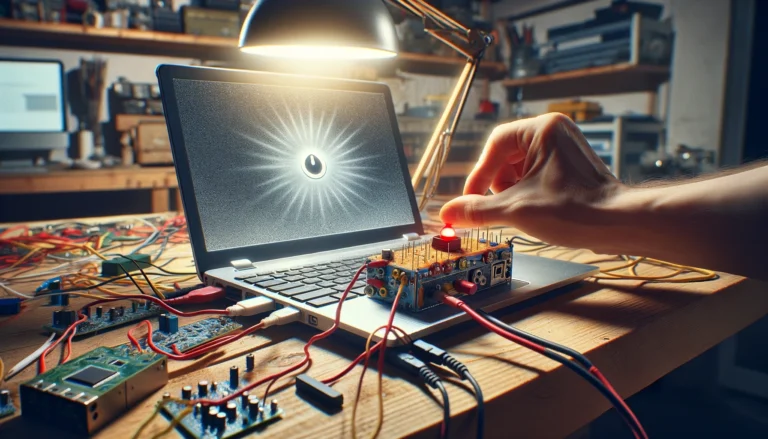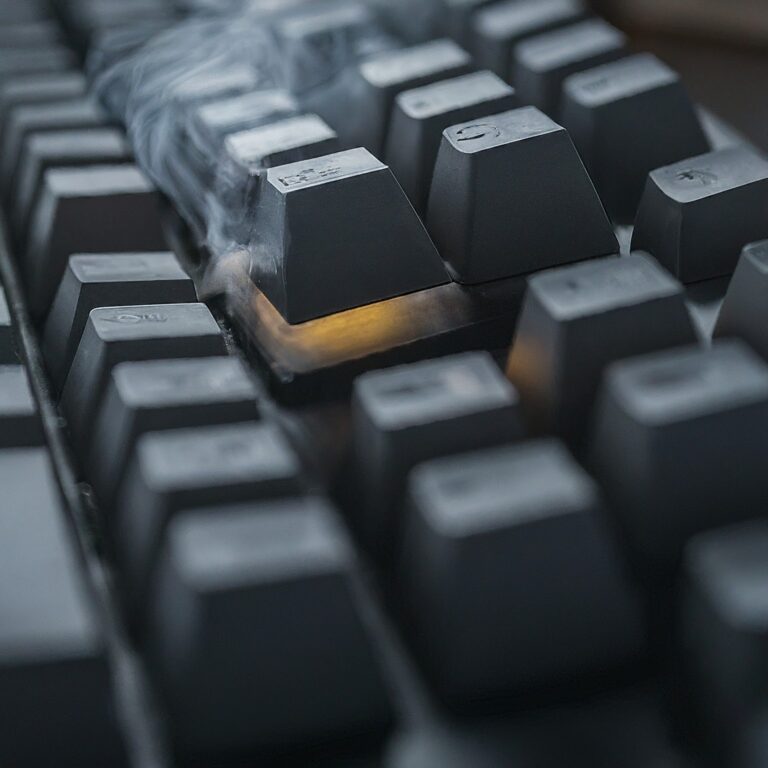To determine if your PC power supply is faulty, look for symptoms such as the PC not starting, intermittent crashes, instability, or abnormal noises from the power supply unit. Conduct a physical inspection for external damage or signs of internal component failure. Testing the power supply’s voltage output with a multimeter and ensuring all connections are secure can also provide insights. Utilizing diagnostic software can help monitor power supply performance. If issues persist, consulting with a professional technician is advisable to avoid further damage to your PC.
Introduction
The power supply unit (PSU) is the heart of your PC, converting electrical power from the outlet into usable power for the components inside your computer. It’s crucial for the stability and longevity of your PC’s components. However, like any other component, PSUs can fail due to various factors, including age, power surges, or overheating. Identifying a faulty PSU early can save you from potential data loss or hardware damage.
Key Takeaways
- Symptoms of Failure: Look out for signs like system instability, unexpected shutdowns, or the PC not starting at all, which could indicate a PSU issue.
- Physical Inspection: Visually inspect your PSU for signs of damage, such as bulging capacitors, burn marks, or an unusual smell, which are clear indicators of failure.
- Voltage Testing: Using a multimeter to test the PSU’s voltage output can help verify its health. Ensure the readings match the specified voltages for your PSU.
- Diagnostic Software: Software tools can provide real-time monitoring of the PSU’s performance, helping detect potential issues before they lead to failure.
- Professional Assessment: If you’re unsure about your PSU’s condition, seeking professional help is the safest option to prevent damage to your PC components.
- Preventive Maintenance: Regular cleaning, ensuring adequate ventilation, and avoiding power surges can extend the life of your PSU.
Understanding PC Power Supplies
The power supply unit (PSU) is a critical component in any PC, responsible for converting AC power from the wall into DC power that the computer’s components can use. It’s not just about providing power; a good PSU ensures stable and reliable power delivery, protecting your components from power surges and fluctuations.
Symptoms of a Malfunctioning Power Supply
- PC Not Starting: One of the most straightforward signs of a PSU issue is if your computer doesn’t power on at all.
- Intermittent Crashes and Instability: If your PC randomly crashes or reboots, especially under load, it could be a power supply issue.
- Noise or Burning Smell: Unusual noises or a burning smell from the back of your PC where the PSU is located are critical signs of a problem.
Physical Inspection of the Power Supply
- External Damage: Look for any obvious signs of damage, such as scorch marks, dents, or a bulging casing, which can indicate internal issues.
- Internal Component Check: If possible and safe, inspect the inside of your PSU for blown capacitors, burn marks, or any other signs of damage.
Voltage and Power Testing Techniques
- Using a Multimeter: Carefully testing the voltage output of your PSU with a multimeter can help confirm if it’s working correctly. Each voltage rail should match its specified value within a certain tolerance range.
- Interpreting Test Results: It’s crucial to know what the normal voltage ranges are for your PSU. Deviations can indicate a problem.
Evaluating Power Supply Connectors and Cables
- Secure Connections: Ensure all PSU cables are securely connected to your motherboard and components. Loose connections can cause instability.
- Cable and Connector Inspection: Check for damaged or frayed cables, as these can lead to poor power delivery and potential short circuits.
Noise Analysis for Power Supply Diagnosis
- Identifying Unusual Noises: Listen for any abnormal sounds from your PSU, such as grinding, buzzing, or clicking noises, which can indicate fan issues or internal component failure.
- Fan Health: The PSU fan should operate smoothly without excessive noise. A malfunctioning fan can lead to overheating and PSU failure.
Monitoring Power Supply Cooling Systems
The cooling system of your PSU, typically a fan, is vital for preventing overheating. If the fan fails or dust accumulates, it can lead to increased temperatures and, eventually, PSU failure. Regular cleaning and ensuring adequate airflow can prevent these issues.
Utilizing Diagnostic Software for Power Supply Assessment
Software tools like HWMonitor or Speccy can provide insights into your PSU’s performance by monitoring voltages and temperatures. While not as direct as physical testing, these tools can offer a glimpse into your PSU’s health during operation.
Conducting a Load Test on the Power Supply
A more advanced method to test your PSU is by performing a load test using specialized equipment or a PSU tester. This simulates a working load and can reveal issues not apparent during idle conditions.
Matching Power Supply Output to PC Requirements
Ensure your PSU provides adequate power for your PC’s components. Underpowered PSUs can lead to instability, especially under load. You can use online calculators to estimate your PC’s power requirements and compare them to your PSU’s output capacity.
When to Consult with a Professional Technician
If you’re experiencing issues with your PSU but are unable to diagnose them yourself, or if the diagnostic steps require equipment you don’t have, consulting with a professional technician is the best course of action. They can provide a definitive diagnosis and recommend the best solution, whether it’s a repair or a replacement.
Conclusion: Ensuring Power Supply Health
Maintaining your PSU’s health is crucial for the stability and longevity of your PC. By recognizing the symptoms of a failing PSU, conducting regular inspections and tests, and seeking professional help when necessary, you can prevent many common issues associated with power supply failures.
FAQs
How do I know if my power supply is underpowered for my PC?
If your PC crashes under load or has trouble starting up, your PSU might be underpowered. Use an online power supply calculator to estimate your needs based on your components.
Can a faulty power supply cause performance issues?
Yes, an unstable or failing PSU can lead to system instability, crashes, and reduced performance.
What are the risks of using a generic power supply?
Generic PSUs may not provide stable or reliable power, increasing the risk of component damage or failure.
How can I prevent power supply issues?
Regular cleaning, ensuring good airflow, using a surge protector, and not overloading the PSU can help prevent issues.
What should I do if I suspect my power supply is failing?
If you suspect a PSU issue, stop using your PC and either test the PSU yourself if you’re capable or consult a professional to avoid damaging your components.
- Is It OK to Clean Laptop Keyboard With Wet Wipes? - March 19, 2024
- How Long Does it Take For a Completely Dead Laptop to Charge? - March 18, 2024
- How Do You Fix a Computer That Won’t Turn on But Has Power? - March 18, 2024






